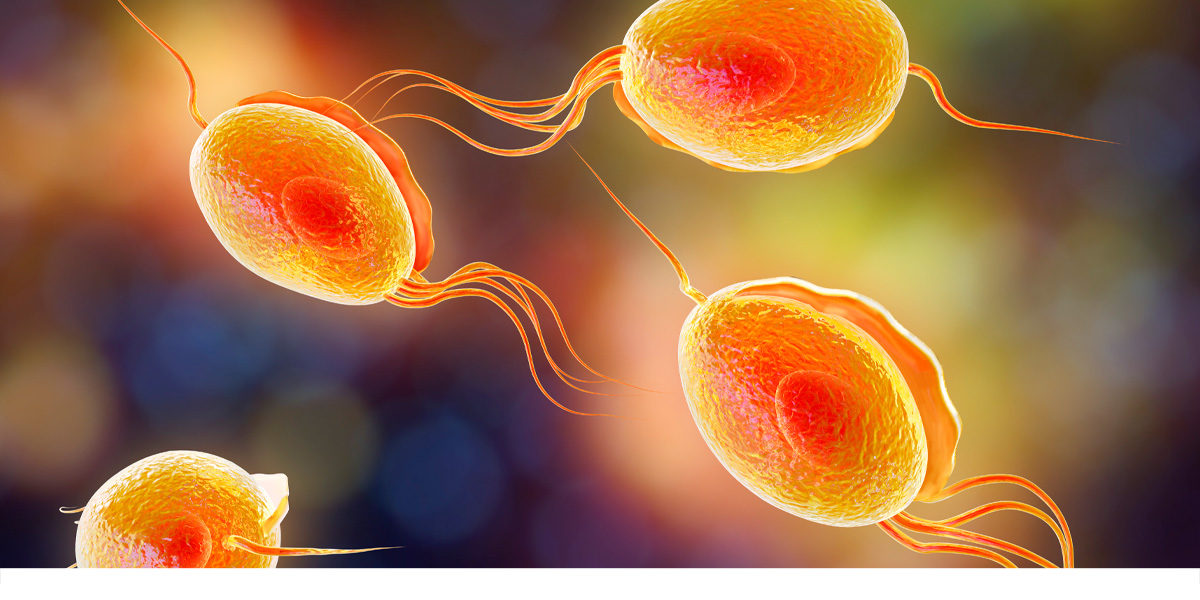Trichomoniasis

WHAT IS TRICHOMONIASIS?
Trichomoniasis is a genital infection which is caused by the organism trichomonas vaginalis. While it is common worldwide, it is relatively rare in urban areas in Australia. Trichomoniasis is a vaginal infection, more common in older populations and those living in remote areas. It is a very rare cause of symptoms in the penis.
Trichomoniasis infection during pregnancy can cause premature delivery and low birth weight in the baby.
HOW DO YOU CATCH TRICHOMONIASIS?
Trichomoniasis is a sexually transmitted infection (STI), which is passed on during unprotected intercourse.
WHAT ARE THE SYMPTOMS?
VAGINAL SYMPTOMS
About 50% of the time trichomoniasis does not cause any vulval or vaginal symptoms. If symptoms do occur they include:
- An unpleasant smelling yellow or green discharge which is usually frothy and profuse.
- Vulval and vaginal itch and discomfort.
SYMPTOMS OF THE PENIS/URETHRA
Trichomoniasis very rarely causes any symptoms of the penis/urethra. If symptoms do occur they are:
- Discomfort with passing urine.
- Abnormal discharge from the penis.
HOW CAN YOU TEST FOR TRICHOMONIASIS?
Trichomoniasis is not routinely tested for, particularly in areas where it is very uncommon. If someone has symptoms of trichomoniasis, or a partner has been diagnosed, then a swab will be taken to diagnose the infection before treatment.
If your partner has been diagnosed with trichomoniasis you will need testing and treatment even if you have no symptoms.
HOW IS IT TREATED?
Trichomoniasis is treated with the following antibiotics:
Tinidazole (Fasigyn) 500mg x 4 tablets as a single dose
OR
Metronidazole, (Flagyl) 400mg three times a day for one week or 2g as a single dose.
These antibiotics need to be taken with food and can cause nausea, tiredness and a metallic taste.
Alcohol must be avoided while on these medications because they can cause nausea, vomiting and headache if taken with alcohol.
If trichomoniasis is diagnosed during pregnancy treatment options may need to be discussed with a specialist.
It is important to avoid any unprotected sexual intercourse for seven days after treatment has finished to allow the treatment to work completely and to avoid reinfection or infecting others. You may also need re-testing four weeks later if your symptoms continue.
SHOULD SEXUAL PARTNERS BE INFORMED?
Yes, all recent sexual partners will need to be advised, tested, and treated even if they have no symptoms. Your doctor or nurse can assist you with this.
HOW CAN YOU AVOID CATCHING TRICHOMONIASIS?
Using condoms every time you have vaginal or anal sex is the best way to prevent trichomoniasis and other STIs.
REMINDER
If you are diagnosed with a sexually transmitted infection (STI), it is important to be tested for other STIs such as chlamydia. Your partners should also be notified, checked and treated if required. Be sure to have another test after treatment to make sure it has been cleared up.
TRICHOMONIASIS BROCHURE PDF
Last updated December 2019. References: Melbourne Sexual Health Centre. Australia STI Management Guidelines
Tags: sexual health, STI

